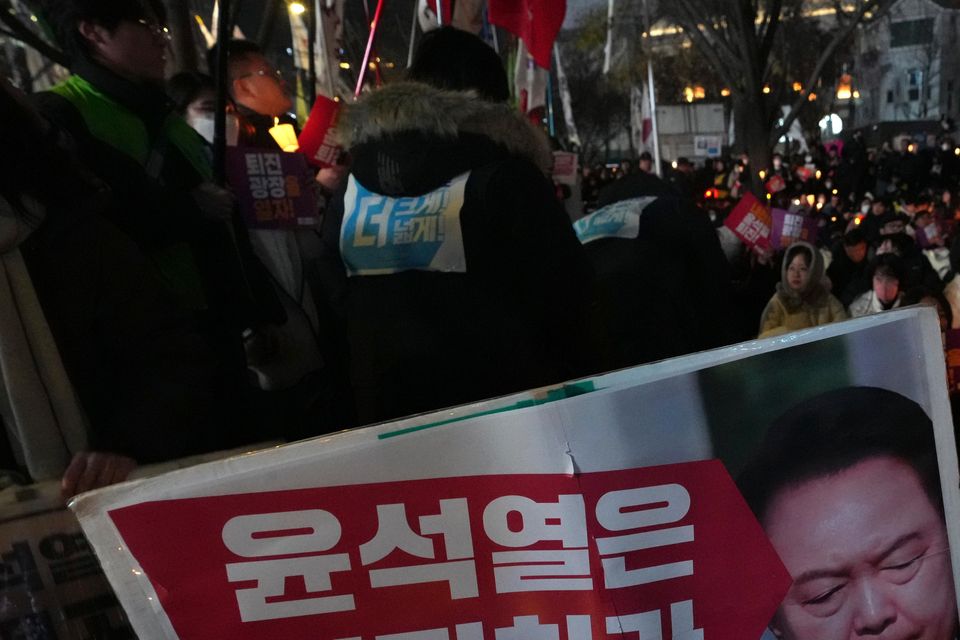South Korea’s president accepted the resignation of his defence minister on Thursday as opposition parties moved to impeach both men over the stunning yet short-lived imposition of martial law that brought armed troops into Seoul streets.
The main opposition Democratic Party and other small opposition parties submitted a joint motion to impeach president Yoon Suk Yeol on Wednesday over his martial law declaration the previous night.
Martial law lasted about six hours, as the National Assembly quickly voted to overrule the president, forcing his cabinet to lift it before daybreak on Wednesday.
On Thursday, Mr Yoon replaced defence minister Kim Yong Hyun with Choi Byung Hyuk, a retired four-star general who is South Korea’s ambassador to Saudi Arabia, Mr Yoon’s office said.
People hold candles during a candlelight vigil against South Korean President Yoon Suk Yeol in Seoul (Lee Jin-man/AP)
It did not provide any further comments by Mr Yoon. He has not made any public appearances since he announced in a televised address that his government was lifting the martial law declaration.
The opposition parties earlier submitted a separate motion to impeach Mr Kim, alleging he recommended Mr Yoon impose martial law.
On Wednesday, Mr Kim offered to resign and apologised for causing disruption and concern to the public.
Mr Kim said “all troops who performed duties related to martial law were acting on my instructions, and all responsibility lies with me”, according to the Defence Ministry.
The impeachment motion on Mr Yoon was introduced at a parliamentary plenary session early on Thursday, meaning it can be put to a vote between Friday and Sunday.
By law, the motion will be scrapped if it is not voted within 72 hours of its parliamentary introduction. Opposition parties can submit a new impeachment motion if the current one is scrapped or voted down, according to National Assembly officials.
Prospects for Mr Yoon’s impeachment is not clear as Mr Yoon’s ruling conservative People Power Party (PPP) decided on Thursday to oppose the motion’s passage.
Choo Kyung-ho, the floor leader of the PPP, told reporters that his party would hold another meeting to determine how to oppose the motion’s passage. Observers say PPP members could simply boycott a floor vote or cast ballots against the motion.
